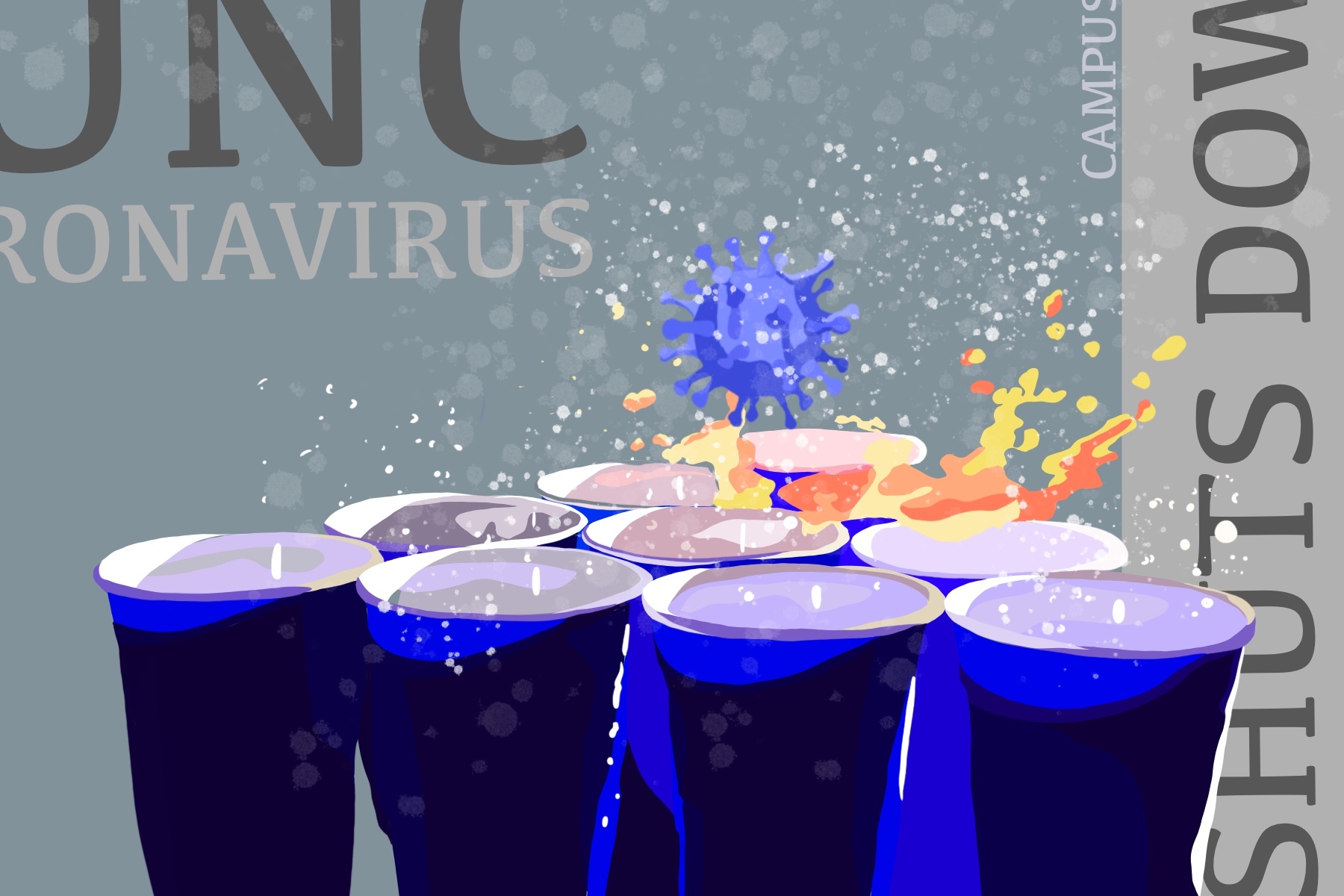House parties. Boat parties. In-person Greek recruitment. Freshmen gone wild. All over the United States these last few weeks, it’s been a nightmare on college campuses. In an article written by The New York Times on Aug. 26, a survey indicated that over 750 universities had more than 26,000 positive cases of COVID-19. And the situation keeps getting worse.
Let’s explore how everything that could go wrong did, and how universities have tried to make the best of the COVID-19 pandemic.
University Responses
Everyone loves to point the finger. Was it freshmen storming the quad or Greek life having in-person bid days? Well, the answer is far from simple.
On Aug. 17, the University of North Carolina at Chapel Hill (UNC) shut down in-person classes and moved all of their undergraduate students fully online. After 177 students tested positive for COVID-19 and 349 were placed in quarantine after possible exposure, UNC’s administration felt that the decision was best for their university community.
“Since launching the Roadmap for Fall 2020, we have emphasized that if we were faced with the need to change plans — take an off-ramp — we would not hesitate to do so, but we have not taken this decision lightly,” read an official university statement.
Even though the university issued a strict mask mandate, many of their students threw parties during the first week of classes, causing the institution to change their course.
Freshman Katherine Fitzgerald, like many college students across the country, was disappointed by the actions of her peers.
“It’s just hard to watch and see some people having fun and letting loose and not remembering that our education and our college experience might get jeopardized because they want to have fun and are just being reckless,” the Boise, Idaho native said.
At Louisiana State University, a tweet with nearly 150,000 views showed a video of a party held in a college basement with what appeared to be hundreds of people packed into one space. One student had posted the party on Snapchat with the caption, “We all finna get rona f–k it.”
https://twitter.com/HighPoppa/status/1297052823348285440?s=20
In the Midwest, the University of Notre Dame decided to delay their in-person classes as positive cases on campus skyrocketed.
In a recent report, the institution announced that there were 473 positive cases reported since the beginning of August. The Fighting Irish cited that most of the cases were connected to two off-campus parties where, mostly seniors, did not wear proper face coverings or maintain social distancing.
On the West Coast, things have looked a bit different. According to a recent Los Angeles Times article, “Small gatherings have led to a surge in COVID-19 cases at USC lately.”
The University of Southern California (USC) found that the recent uptick in cases has been attributed to games of Monopoly, study groups and dinners where five to 10 individuals were in one residence.
Dr. Sarah Van Orman, who serves as the chief health officer for USC Student Health, stated that “Some of what’s difficult is while we hear reports of large parties here and there, that’s actually not the majority of the situations where we are encountering students who are infected.”
Van Orman also said problems arise because students in smaller settings often eat and drink together, thereby shunning COVID-19 protections such as facial coverings and social distancing.
With many universities requiring that students have gatherings with fewer than 10 people, this recent statement completely flips the script. So, what exactly is the solution to the problem? Since students keep partying, going to restaurants and gathering in large quantities, how can we stop this?
UIUC’s Response
The answer, which is open to debate, could be increased testing.
In a recent Fortune magazine article, the publication declared that one institution may have “the best COVID testing operation in the U.S.”
The University of Illinois at Urbana-Champaign (UIUC) has one of the most developed and aggressive tracking and testing programs in the nation, and also offers fully online, hybrid and in-person classes.
According to a recent article in the Chicago Sun-Times, UIUC tests represent 20% of all tests administered in the state of Illinois and 1.5% across the nation.
UIUC President Timothy Killeen stated that his university is doing everything in their power to keep their kids safe and combat the virus as much as possible.
“We don’t like this virus. We want to crush it, and that’s what we’re doing, and we’re doing it on a massive scale,” Killeen told CNBC.
Here is how UIUC is crushing this “new normal.”
When each student arrived on campus, they were administered an initial test. After that, they must get tested twice a week. A university-developed app displays negative test results, and each student must show their “green light” to enter university buildings.
Unlike many of their peer institutions, UIUC only uses a saliva-based test, developed in-house, which received FDA emergency use authorization. The campus has 17 testing locations and results are available within five hours after the test is conducted.
On Aug. 25, the institution reported that they only had 120 positive cases after administering 15,850 tests, a positivity rate of 0.75%.
Many institutions across the country could learn from the wins of UIUC to ensure that students, staff and faculty are in the safest environment to have a great semester.
As we continue the rest of the fall semester, cases will certainly increase. However, with proper social distancing, mask-wearing and disciplinary actions taken, institutions across the United States have the opportunity to charter unprecedented waters as university leaders step up to meet the challenge.
















